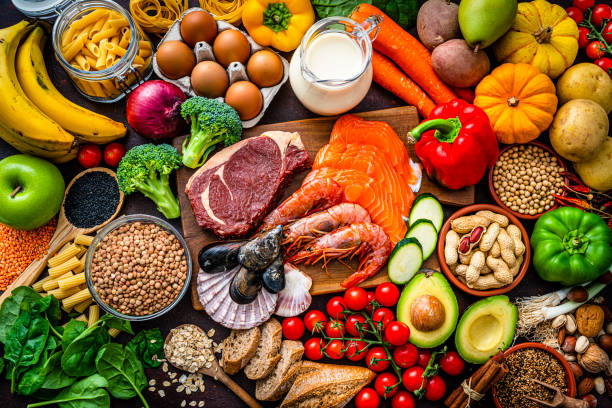Water fasting for the body's self-repair
- Posted on 23/01/2024 16:32
- Film
- By abelozih@sante-education.tg

Extract from the article: Water fasting consists of voluntarily stopping eating hard foods for a certain period to allow the body to rest and regenerate. It can be done in the aftermath of the festive season, or at the beginning of the year. Unlike dry fasting, here you can d
Water
fasting consists of voluntarily stopping eating hard foods for a certain period
to allow the body to rest and regenerate. It can be done in the aftermath of
the festive season, or at the beginning of the year. Unlike dry fasting, here
you can drink water throughout the day. In other words, you stop eating but
continue to drink. There are several ways of approaching water fasting, because
there is no universal way of doing it.
It depends on the individual and the situation they find themselves in.
It is done by drinking water and combining it with other liquids or drinks such
as herbal teas, juices or vegetable soups. The aim of the hydration diet after
the festive period is to intensify the body's detoxification mechanisms by
eliminating the intake of dietary toxins caused by excesses during the festive
period. This will strengthen the functioning of the emunctory organs all year
round, i.e. those responsible for eliminating organic waste: skin, lungs,
liver, kidneys and intestines.
The
principle of water fasting
The
father of medicine, Hippocrates, said that « to eat when you are ill is
to feed your illness ».The scientific essence of water fasting comes
from the traditional therapeutic experiments of Hippocrates and the therapeutic
fasting experiments of the German doctor Otto Büchinger (1878-1966).When
animals are ill, they have an instinctive wisdom that leads them to stop eating
in order to heal.
According
to the experiments of these two scientists, when the body is subjected to a
lack of food, it is subject to stress that forces it to draw on its reserves
and forces it into physiological self-regulation, with healthy cells
strengthening and diseased cells weakening.Emotional self-regulation also
occurs, with a hormonal upheaval caused by fasting that activates the
production of serotonin and phenylethylamine, the hormones of happiness and
joy.
Water
fasting triggers autolysis or autophagy, i.e. the disintegration of
poor-quality tissue, followed by a process of reconstruction and regeneration
of healthy tissue.
As
a result, the body recovers everything it can use and burns its reserves for
energy.Water fasting gives the body time to carry out an in-depth cleansing of
the arterial and venous walls, the thousands of kilometres of lymphatic and
capillary networks, the cells of all the organs and the spaces between them.
Prepare
yourself days beforehand
You
need to prepare your body for the fast. The first thing to do is find out about
the principles of water fasting. Then consult your doctor if you are undergoing
treatment, and above all see a specialist in water fasting for useful
information, advice and guidance.
Start
by changing your diet
You need to change your diet or go downhill at
least a week before you start fasting. This essentially involves reducing your
consumption of foods and animal products and other stimulants, including meat,
fish, eggs, coffee, alcohol, sugar, sweet products, fats and cereals. This is
an important stage, as it helps to prepare the body for fasting and to minimise
the undesirable effects of fasting.
Reactions
and discomforts of water fasting
Water
fasting causes physiological reactions and effects or discomforts. These are often referred to as detoxification
crises: fatigue, headaches, irritability, slight malaise, liver attacks,
insomnia, anxiety, occasional tiredness, occasional hypoglycaemia, digestive
problems, etc.These discomforts are temporary and never last very long. The
detoxification crisis can be reduced by adding juices and water if
necessary.Low blood pressure can occur at the start of fasting, leading to
fatigue and lethargy.To deal with tiredness and irritability, take the time to
rest in a quiet place. For headaches, you can add a little salt to the
water.Who can do water fasting?Anyone can do it, but people suffering from
illnesses such as diabetes, tuberculosis, ulcers, anaemia, hepatitis, high
blood pressure, cancer and children should be accompanied by a health
professional who has mastered this therapeutic practice.
How
is water fasting carried out?
Water
fasting lasts for 12 days. Throughout this period, you must refrain from eating
the following foods during the day: meat, fish, milk, cheese, eggs, bread,
cereal flour paste, pasta, tinned food and pastries. You should also avoid
alcohol, sugary drinks, wine, coffee, cocoa, sugar, salt, cigarettes and
tobacco for 12 days.
On the first day, eat only natural raw vegetables, including carrots, and drink water. On the second day, natural fruit (banana, orange, soursop, mandarin orange, papaya, etc.) and water are recommended.On the third day, drink fresh natural fruit juices. The fourth day is reserved for infusions of aromatic and medicinal plants, including lemongrass, Gambia tea, centaurea, cinnamon, turmeric, green tea, bay leaves, parsley, basil, mint, artemisia, combretum micratum (kinkeliba) and moringa. From the fifth day onwards, alternate between water, fruit juices, infusions, decoctions and soups until the 12th day.
Beneficial
effects
The
digestive tract is completely rested, allowing the body to recover for its work
of cleansing and replenishing energy.The cells of the pancreas that produce
insulin are at rest and regenerate. The body repairs itself during this process
and recreates a healthy, balanced environment that allows the cells to
regenerate.The colon eliminates the waste that overloaded it and rebalances its
intestinal flora while repairing its walls.Water fasting eliminates excess
sugar, salt, alcohol and fatty, protein-rich foods, including meat, consumed
over the festive period. After the 12-day water fast, the body is detoxified.
Breaking
the water fast
After
the 12 days of fasting, you should avoid jumping on foods that you did not eat during
the fast.For example, go for alcohol, chips or pasta with a good sauce, or even
some good foufou.This is very unwise and will neutralise the results of the
fast.It may also cause health problems such as stomach ache and other
discomforts.
For
this reason, refeeding should be done gradually.It's a matter of reintroducing
food over 12 days, equivalent to the 12 days of fasting. Go gently, using
easily digestible products and small portions. In practice, alternate between
water, fruit juices, infusions, soups and broths over two days.
After
the fast, reintroduce food gradually
After
the young person, for the first three days, you should eat cooked food, but be
careful not to eat meat, fish, milk, cheese, eggs, bread, cereal flour paste,
pasta, tinned food or pastries.
After
these first three days, a second wave of gradual reintroduction of cooked foods
with fish, cereal flour paste, pasta and pastries should be observed from the
third day onwards.After this second phase, it is recommended to eat cooked
foods with meat, fish, milk, cheese, eggs, bread, cereal flour paste, pasta,
tinned food and pastries.Alcohol, sweetened drinks, wine, coffee, cocoa, sugar
and salt can be consumed in moderation until the 21st day.
When
should I do water fasting?
It
is advisable to do this fast when you are on holiday.It's a practice that
requires a lot of rest and calm to allow the body to self-regulate and
regenerate. If you want to go to work and do water fasting, you need to reduce
the time and intensity of your work. Bear in mind that the two keys to
successful fasting are calm and rest. This is why, if possible, it is advisable
to retire to the countryside or to a centre or house where there is peace and
quiet.
Gadiel
TSONYADZI
Article
validated by Dr. Maarira Koutouma, nutritionist and biogenist specialising in
nutritional education and health teaching.




